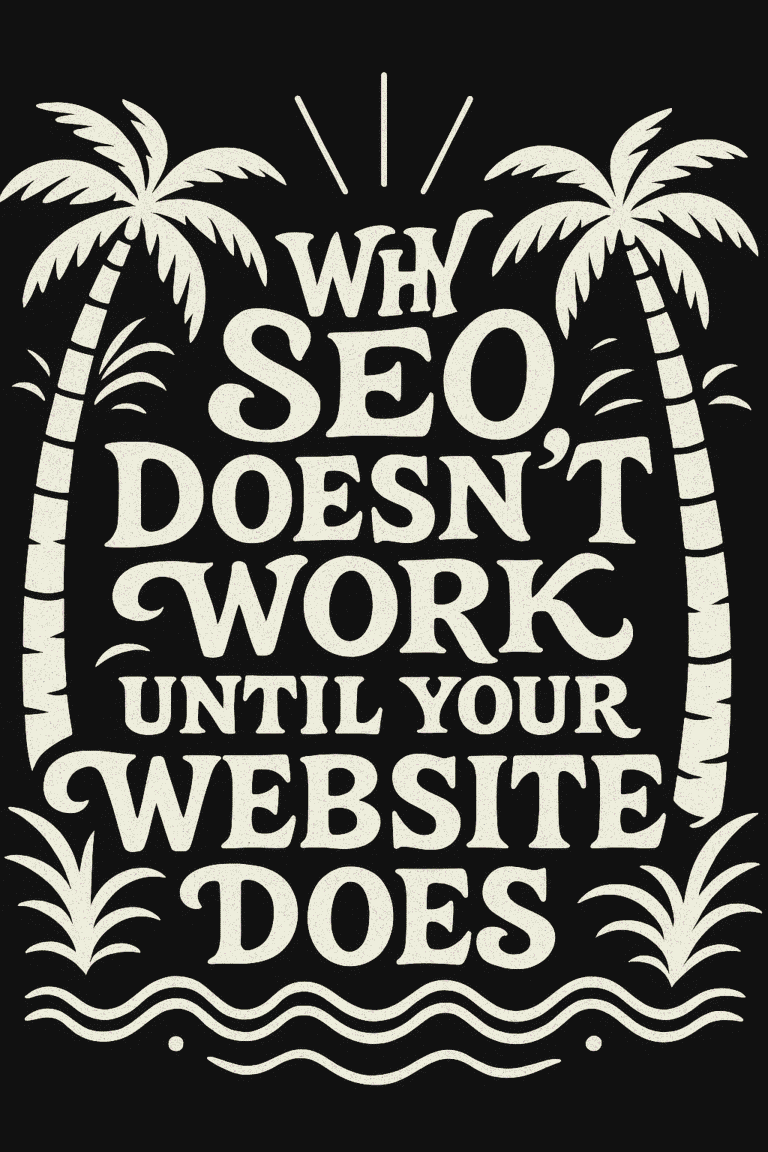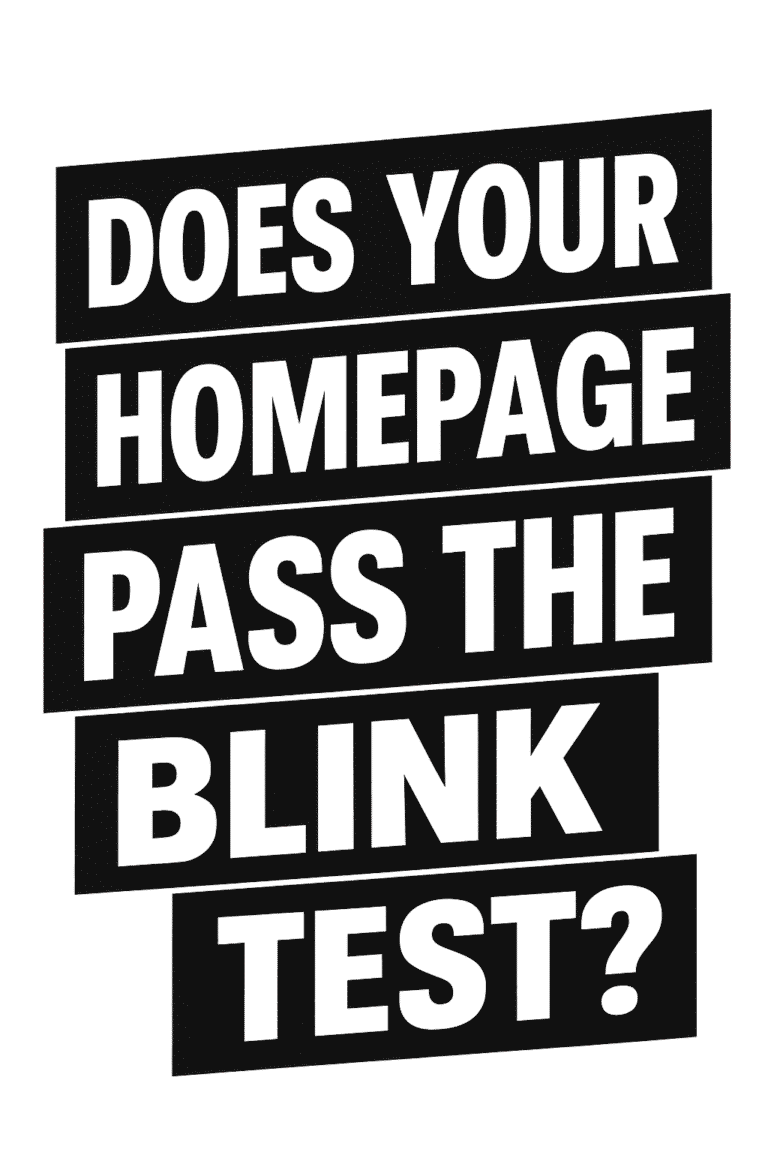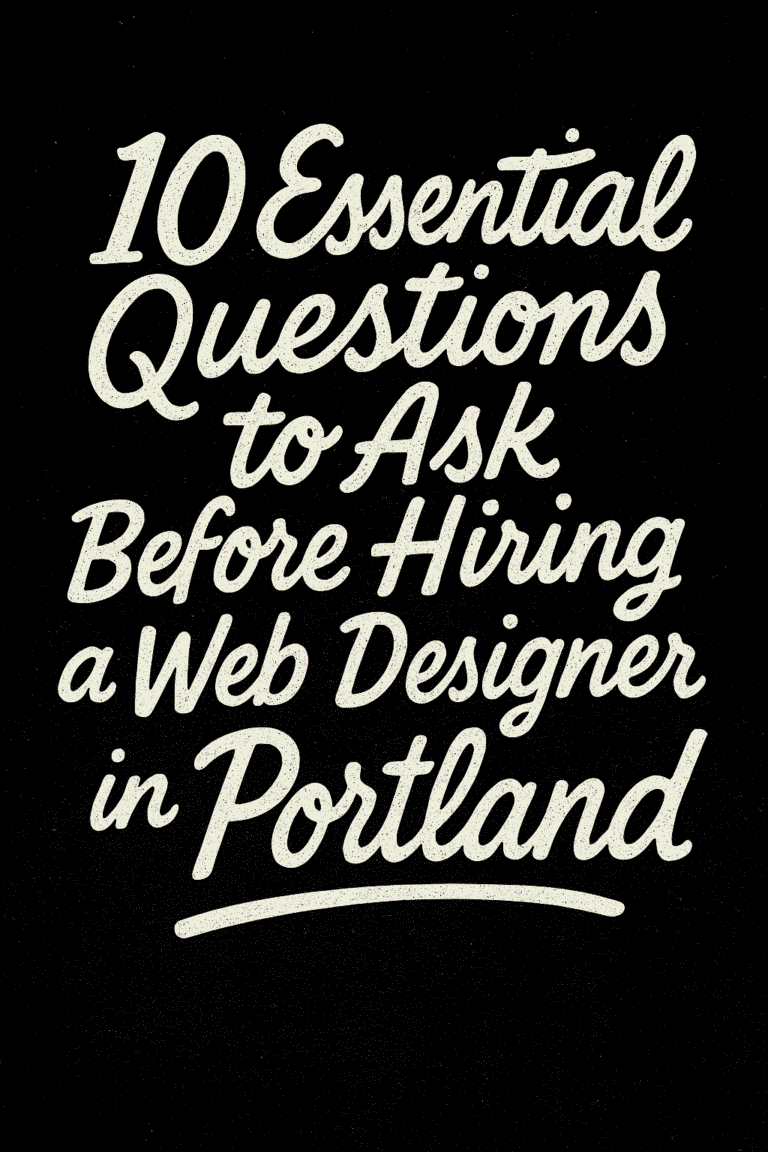
Ever clicked on a website only to find yourself drumming your fingers on the desk as you wait… and wait… and wait some more for it to load? Annoying, right? Well, guess what: if your own website is slow on the draw, you’re basically rolling out the red carpet for your customers to bounce. And we don’t mean in the fun, trampoline kinda way.
But it’s not just a matter of keeping people from gnashing their teeth in frustration. Slow website load times can actually take a big ol’ bite out of your bottom line. Think lost sales, lowered search rankings, and a tarnished brand reputation. Ouch.
So stick around as we dive deep into the need-for-speed world of website performance. We’ll cover the facts, the figures, and the fixes to help your site—and your business—run like a well-oiled machine. Let’s get started!
The Impact of Slow Load Times
Let’s not sugarcoat it—when your website acts like it’s stuck in the mud, it’s more than just a little hiccup. It’s a full-blown issue that can hit you where it hurts the most: your wallet. So, let’s break down the ways those sluggish load times are seriously messing with your mojo.
Lost Revenue
First up, let’s talk dollars and cents. The majority of users will abandon a site that takes longer than three seconds to load. Yeah, you read that right—three seconds. And for businesses that rely heavily on e-commerce, even a one-second delay in page response can result in almost a 10% reduction in conversions. That means if your e-commerce site is pulling in $100,000 per day, a one-second delay could cost you $2.5 million in lost sales annually. Oof!
SEO Consequences
Now, let’s chat about SEO—aka, that magic formula that makes you show up in Google searches. Google uses a bunch of factors to rank your website, and you guessed it, speed is one of ’em. A slow-loading website not only discourages users from sticking around, but it can also drop you lower in search engine rankings. That’s like a double whammy of “no thanks.”
User Experience & Brand Reputation
Last but definitely not least, let’s talk about your rep. Your brand’s reputation is one of its most valuable assets. Slow website load times can make users associate your brand with a frustrating and inefficient experience. And trust us, that’s not the kind of branding you want. Once the word spreads that your website is as slow as molasses, you’ll be hard-pressed to find folks who want to wade through the sludge, no matter how awesome your products or services are.
The Underlying Causes of Slow Websites
Alright, so now we know that a snail-paced website is bad news bears for your business. But why the heck is your website so slow in the first place? It’s like your site just decided to take a leisurely stroll when you’ve got a 100-yard dash in mind. Let’s dig into the main troublemakers that could be holding your website back.
Large Media Files
First up on the Most Wanted list: those beefy media files. High-res images and videos can make your site look like a million bucks, but they can also make it run like it’s hauling a ton of bricks. Sure, we all want our websites to be visually stunning, but not at the expense of speed. Oversized media files are one of the most common culprits for slow-loading websites. They take forever and a day to download, causing your visitors to wave the white flag and head elsewhere.
Poorly Written Code
Next, let’s talk about the backbone of your website: the code. If your code is more bloated than a Thanksgiving turkey, it’s going to wobble. Poorly written or redundant code can seriously gum up the works. HTML, CSS, and JavaScript need to be as clean and streamlined as possible for optimum speed. So, if you’ve got outdated or unnecessary tags, or scripts that run longer than an Oscar acceptance speech, you’re in for a world of hurt.
External Scripts and Plugins
Last on our list are external scripts and plugins. You know, all those cool add-ons like social media feeds, chatbots, and analytics tools. While they offer lots of fancy features, they can also slow your site down to a crawl. Every time a user lands on your site, these scripts need to load and run, and that takes time. Plus, you’re relying on an external server, which you have zero control over. If that server’s slow, guess what? Your website’s slow too.
How to Check Your Website Speed
Alright, so we’ve talked about the “why” and the “what” of slow websites. Now let’s dive into the “how”—as in, how to find out if your website is actually slow or if it’s just your imagination (or your Wi-Fi acting up again). Thankfully, there are some nifty tools out there that can give you the lowdown on your website’s speed.
Google PageSpeed Insights
First off, let’s talk about the big G—Google. Their PageSpeed Insights tool is like a personal trainer for your website. All you gotta do is plug in your URL, and boom! It spits out a report card on your site’s speed performance. It’ll even give you separate scores for mobile and desktop, plus a laundry list of suggestions to improve your site. Best of all? It’s free.
GTmetrix
Another solid option is GTmetrix. This tool takes a deep dive into your site’s performance and offers a detailed analysis, complete with grades and actionable recommendations. The user-friendly dashboard makes it easy to understand where the bottlenecks are and how to fix ’em. GTmetrix also allows you to test your site’s speed from different locations around the world, which is super handy if you’ve got an international audience.
Other Tools
There are other contenders in the ring as well, like Pingdom and WebPageTest. These tools offer similar features but come with their own unique bells and whistles. For instance, Pingdom provides real-time monitoring, while WebPageTest gives you a visual rundown of how your site loads from start to finish.
Quick Fixes for Improving Website Speed
Alright, time to roll up those sleeves and get our hands a little dirty. We’ve diagnosed the problem, and now we’re prescribing the medicine. Let’s talk about some quick and relatively painless fixes you can apply to get your website moving like a greyhound chasing a rabbit.
Image and Video Optimization
First things first—those hefty media files we talked about? Time to put ’em on a diet. Use tools like Adobe Photoshop or free online services like TinyPNG to shrink your image file sizes without sacrificing quality. For videos, consider compressing them or hosting them on platforms like YouTube or Vimeo, which automatically compress and optimize videos for you.
Code Minification
Next on the list is code minification. Sounds fancy, but it’s really just about cleaning up your code. Minification removes unnecessary characters (like spaces and comments) from your HTML, CSS, and JavaScript files, making them leaner and faster to load. There are tons of free tools out there like Minify and UglifyJS that can help you get the job done without breaking a sweat.
Caching
Last but not least, let’s talk caching. Ever notice how some websites load super fast the second time you visit them? That’s caching at work. When you enable caching, you’re essentially telling browsers to store certain files locally. That way, the next time a user visits, the browser can pull those files up lickety-split, instead of downloading them all over again. You can enable caching through your website’s backend settings or by using plugins, depending on what platform you’re using.
Longer-Term Strategies for a Speedy Website
Alright, so you’ve put in the work, applied some quick fixes, and now your website is humming along nicely. But let’s be real—maintaining a speedy site is more of a marathon than a sprint. You gotta keep an eye on things and occasionally fine-tune your strategy. So let’s chat about some long-term plays that’ll help keep your website in the fast lane.
Regular Audits
First up: regular audits. Think of it like going to the dentist, but for your website. Nobody loves doing it, but it’s essential for good health. A routine website audit can help you spot speed issues before they become full-blown problems. And thanks to the tools we mentioned earlier like Google PageSpeed Insights and GTmetrix, auditing your site is a cinch. Make it a habit to run these checks monthly or quarterly to keep everything running smoothly.
CDN Services
Next, let’s talk about CDNs, or Content Delivery Networks. Picture a bunch of servers spread out all over the world, each holding a copy of your website’s files. When someone visits your site, the CDN delivers those files from the nearest server location, making the load time quicker. It’s like having a bunch of mini-me’s of your website strategically placed around the globe. Services like Cloudflare and Akamai offer CDN options that can dramatically improve your site’s speed and reliability.
Hosting Solutions
Last but not least, let’s chat about your website’s home—its hosting solution. You wouldn’t build a fancy sports car and then park it in a rickety old garage, right? The same goes for your website. Invest in a reliable, high-quality hosting solution that can handle your site’s bandwidth needs. Whether it’s shared, dedicated, or cloud hosting, make sure it’s up to snuff. Your hosting environment can make or break your website’s speed, so choose wisely.
Conclusion
Phew! That was a lot, right? But hey, we’ve covered some serious ground here. We started off by discussing the impacts of slow website speeds—from lost revenue to SEO penalties to dented brand reputation. Then we delved into the usual suspects causing your site to lag, be it bulky media files, jumbled code, or pesky external scripts.
But we didn’t stop there. We gave you the 411 on how to check your website’s speed and armed you with quick fixes to get you back on track. Plus, we dished out some long-term strategies to keep that website of yours running like a well-oiled machine.
So, what’s next? Well, if all this talk of speed and performance has you breaking out in a cold sweat, don’t worry—Graticle Design has got you covered. Whether you’re looking for a comprehensive speed analysis, a full-blown website audit, or any other web design services, we’re just a phone call away. Seriously, don’t hesitate to reach out to us at (360) 450-3711. Let’s work together to turn your website into the speed demon it was always meant to be!





